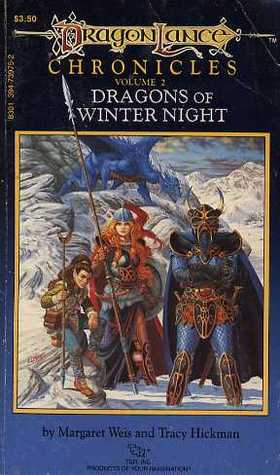 I am Woman hear me… whimper?
I am Woman hear me… whimper?Ask any Jane Austen fan and she’ll tell you her favorite character is Darcy. Ask me, I have to just shrug and I don’t care about him as much as say, Mr. Bingley.
Yeah, that’s right, you heard me. I find the whole Darcy-love phenomena leaves me scratching my head. Why? Well, just look at that character-type. It’s all over the darned place! From Austen to…ahem, Fifty Shades of Grey.
If you’ve read contemporary fiction for any amount of time recently, you’ve noticed a …shall we say lack of strong female characters?
Yes, I said it. A complete lack of strong female characters. Why? From women who owe something to the women’s movement — from everything to the ability to break the glass ceiling to now fighting in combat, why are we suddenly swooning over chest thumping Neanderthal men? (Apologies to the Neanderthals among my readers and characters ;)). Theoretically, it’s because of survival instincts, but I read an interesting article while writing this that said Alpha males tended to die out faster than betas. Why is that, I wonder? Could it be that the women in their tribes got tired of being told their only worth was in the kitchen and bedroom?
In these days, to say I don’t get the love of that type of character is an understatement. Where are the male leads who can lead others while saying “Sure honey, you don’t need to cook tonight. No problem. How’s takeout sound”?
So, when I sat down to write my new paranormal romance novel, PASSION’S SACRED DANCE, that’s exactly how my heroine, Stacy, turned out. She runs her own business and wrangles with bankers without a man’s assistance … However her bankers and rivals turn out to be a little different from the norm. So I had to introduce her to the strong, silent-like Aaron Fielding. While he might display some of those so-called Alpha characteristics he is also kind, thoughtful, a peacemaker, and will respectfully bow to a super — well, to say more will give you a spoiler for my book. ;)
Yes, he’s had experience dealing with odd types of foul fiends. He can, and will, lop off a head or two when necessary like a good warrior should. But when it comes to how he and heroine Stacy see one another, it’s eye-to-eye, thank you very much. He may be strong with a sword, but she can think her way out of a paper bag, and when I put them together, their chemistry went off the charts. She need not whimper, and he need not beat his chest. You see, to me, strong heroines and heroes complement each other very well especially when they can agree. Between them, they make for the perfect romance, I think. I hope you’ll give them a look and enjoy their chemistry.
Would you like to read a little bit more about Stacy and Aaron? Okay:
Battling mounting debt, Stacy Macken is determined not to lose her historic art gallery. When Aaron Fielding appears and offers to help, she fights to keep the attraction sizzling between them from clouding her judgment. He may be her savior in disguise -- but can she trust him?
Aaron intrigues her with tales of the Tuatha dé Danann, sworn warriors who protect humanity from the monsters seeking their destruction. If Aaron can prove what he claims, she would give up anything to help -- even the gallery he claims is sacred ground. But with her property set to stage the next epic battle, she needs answers. An old family diary will confirm the ancient legend is true, if only they can find it in time.
If the battle is lost, the enemy will take control of Earth for the next five hundred years. Stacy and Aaron's budding love might only complicate things.
PASSION’S SACRED DANCE can be purchased for Kindle from Amazon and coming soon to other venues. I hope you’ll check it out and enjoy the story I had to tell!
Thanks, Cherry for inviting me here today!

Passion's Sacred Dance by Juli D. Revezzo
Genre: paranormal romance
About Passion's Sacred Dance:
Battling mounting debt, Stacy Macken is determined not to lose her historic art gallery. When Aaron Fielding appears and offers to help, she fights to keep the attraction sizzling between them from clouding her judgment. He may be her savior in disguise--but can she trust him?Source: Info in the About Passion's Sacred Dance was taken from the press kit from the publicity team.
Aaron intrigues her with tales of the Tuatha dé Danann, sworn warriors who protect humanity from the monsters seeking their destruction. If Aaron can prove what he claims, she would give up anything to help--even the gallery he claims is sacred ground. But with her property set to stage the next epic battle, she needs answers. An old family diary will confirm the ancient legend is true, if only they can find it in time.
If the battle is lost, the enemy will take control of Earth for the next five hundred years. Stacy and Aaron's budding love might only complicate things.
Might this be something you think your readers would be interested in?
Buy Link(s):
Book Trailer:
About Juli D. Revezzo:
Juli D. Revezzo has long been in love with writing, a love built by devouring everything from the Arthurian legends, to the works of Michael Moorcock, and the classics and has a soft spot for classic the “Goths” of the 19th century. Her short fiction has been published in Dark Things II: Cat Crimes, The Scribing Ibis, Eternal Haunted Summer, Twisted Dreams Magazine and Luna Station Quarterly. She also has an article and book review or two out there. But her heart lies in the storytelling. She is a member of Independent Authors Network and Magic Appreciation Tour. Passion’s Sacred Dance is her first romance novel.
Juli's Link(s):
julidrevezzo.com
blog at julidrevezzo.com/blog
https://www.facebook.com/julidrevezzo
google+
GoodReads
Shelfari
@julidrevezzo





























